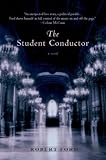50BC09 #5: The Rest Is Noise: Listening to the Twentieth Century
Author: Alex Ross
Pages: 684
Press: Picador, 2008 (ppbck ed.)
genre: non-fiction, music criticism

rating: 5 of 5 stars
I was skeptical going in...not because I haven't enjoyed Alex Ross' writing in the New Yorker, but because good music criticism does not a music historian make. My doubts were unfounded. I took a risk and used this book as the text for my Music in the Twentieth Century course (for non-majors) and I'm never looking back.
Ross keeps a general chronological outline, but centers a century's worth of music around a political and artistic narrative. One of the more intriguing aspects is his use of Thomas Mann's Doctor Faustus as a recurring presence, drawing an inexorable link between compositional history and Faustian endeavors. However, in most cases, we see composers who battle with the Mephistopheles of totalitarianism not as raving lunatics, but as artists torn between their commitment to art and general survival.
The author is unafraid to talk about the actual music, painting vivid descriptions, and unfettering important musical concepts for a general audience. His free
online audio guide is a beautiful supplement to his discussions in the book (and serves to fill in some of the necessary "gaps" ). Ross makes intriguing choices that run counter to traditional histories of twentieth century music (entire chapters devoted to Sibelius and Britten, for example), but makes a strong case for a socio-political approach rather than a canonical, or "great master" approach. Composers like Richard Strauss and Arnold Schoenberg are not confined to time frames, but reappear out of the tapestry when their music echoes in the ears of compositional trends.The twentieth century appears as a pre-existent soundscape, whose tones, rhythms, and harmonies are manipulated by the various composers traversing the various hills and streams of modernity.
 The Thief of Venice: A Homer Kelly Mystery by Jane Langton
The Thief of Venice: A Homer Kelly Mystery by Jane Langton

